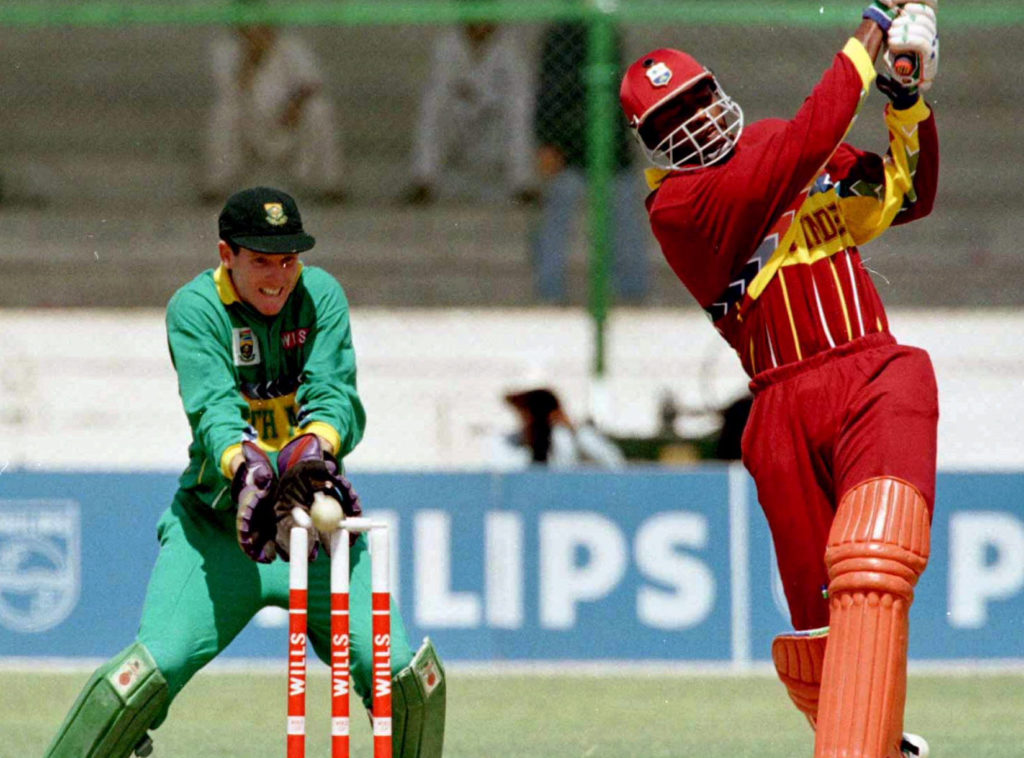Former wicketkeeper-batsman Steven Palframan recalls the popularity of pinch-hitting in 1996, working alongside captain Hansie Cronje and coach Bob Woolmer – and playing cricket in Pakistan, writes JONHENRY WILSON.
Palframan was a late replacement for the injured David Richardson – and was the only specialist wicketkeeper in a squad that featured a handful of survivors from the 1992 World Cup such as all-rounder Brian McMillan, batsman Jonty Rhodes and fast bowler Allan Donald.
‘I was due to play a game the following day for Border against Western Province, and was in my hotel room at the Newlands Sun. I was watching the television – when I saw that Dave got injured, breaking his thumb. Within a few minutes it was announced that I would be joining the squad as Richardson’s replacement. I had been in the preliminary squad, so I was always there or thereabouts,’ Palframan told SA Cricket magazine.
‘It was a hectic period before the start of the World Cup. My second son, Mike, was born shortly before the pre-tournament training camp. I asked Bob if I could arrive at the camp a day late, but Bob didn’t want to set a precedent, so I arrived there as the father of a one-day old baby. Mike ended up being fine, and when I got back from the World Cup he could smile, so that was an interesting period, fatherhood and cricket-wise.
‘The guys were all incredibly friendly and supportive. I knew all of the team as I had played against and with them. I had been to one or two training sessions, and hadn’t worked with Bob and Hansie Cronje too much. But I knew both of them quite well. Bob’s record spoke for itself. He was a knowledgeable coach – and relayed things to you in easy, uncomplicated terms. I got on really, really well with him.
‘Hansie was a great leader, an inspiring guy. He was fun-loving. One of the funny things in the trip to the World Cup was when Hansie gave Paddy Upton a sleeping tablet. Paddy was taking us through our warm-up drills and fell fast asleep during these drills. That was all Hansie’s doing.’
The 1996 World Cup was co-hosted by India, Sri Lanka and Pakistan. Bomb blasts in Colombo saw Australia and the West Indies forfeit victories to Sri Lanka. South Africa, meanwhile, continued to play in Karachi, Faisalabad and Rawalpindi.
‘The subcontinent was not new to me, I had been on the 1993 tour of Sri Lanka in Kepler Wessels’ team. As with all the countries on the subcontinent, there are plenty of plush hotels – and there is extreme poverty,’ added Palframan.
‘It’s an incredibly passionate nation about cricket and the players. There were tons of security, we were well protected in Karachi in particular. We were well looked after and never felt threatened in any way, although there were some bomb threats around the area at the time, so we were always on our guard.’
Traditionally a middle- to lower-order batsman, Palframan opened the innings on occasion at the World Cup. His highest score, though, was a mere 36-ball 28 gathered against an England bowling attack spearheaded by seamers Dominic Cork and Darren Gough in Rawalpindi.
He was scheduled to bat as low as nine in the order against the United Arab Emirates, but wasn’t required after opener Gary Kirsten’s near double-century powered the Proteas to a 300-plus score. Palframan, too, didn’t bat against the Netherlands in another strong showing from Kirsten and fellow opener Andrew Hudson.
‘I enjoyed pinch-hitting up the order at the World Cup.
‘It was something I had done at Border. It was a role I had become accustomed to. I opened the batting in my debut match against England in Port Elizabeth prior to the World Cup, but Andrew Hudson and Gary Kirsten were reverted to as the openers against the United Arab Emirates in the first game of the World Cup. That huge partnership between Hudson and Kirsten was an amazing compilation of runs. Gary got that massive score against the UAE, and later Hudson scored a really big one against the Netherlands,’ concluded Palframan.
Photo: Gallo Images







